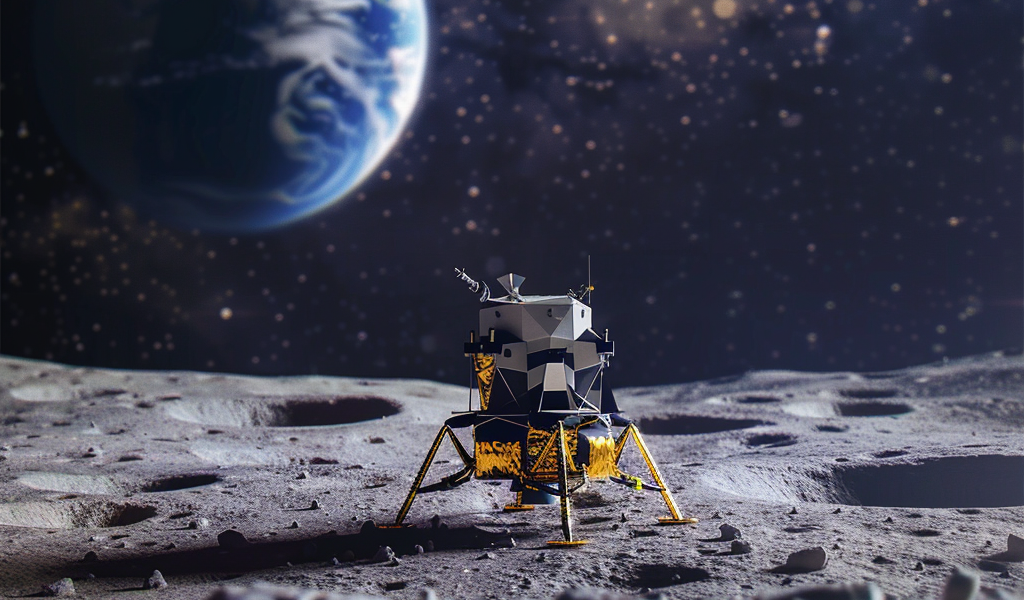International Moon Day 2024: Celebrating Lunar Exploration and the New Space Race
Every year on July 20, the world comes together to celebrate International Moon Day, a significant occasion that commemorates humanity’s first successful landing on the Moon during the Apollo 11 mission in 1969. Established by the United Nations in 2021, this day serves not only as a reminder of past achievements in lunar exploration but also as a call for international cooperation in the peaceful use of outer space.
This year’s celebration is particularly noteworthy, as it coincides with a renewed focus on lunar exploration. The United Nations emphasizes that International Moon Day is a time to reflect on the accomplishments of various nations in their quest to explore the Moon. It also aims to raise awareness about sustainable practices for future lunar exploration and utilization.
As part of the celebrations, two global livestreaming events are scheduled for July 20, showcasing contributions from different countries. One event will originate from China, while the other will come from Germany, highlighting the collaborative efforts and competitive spirit that characterize the current state of space exploration.
The term ‘new space race’ has been frequently used to describe the current landscape of lunar exploration, which sees nations like China and the United States vying for leadership in this domain. However, the competition extends beyond just national programs, as private companies and international partnerships are also playing critical roles in advancing lunar missions.
In recent months, the Moon has captured the attention of scientists and space enthusiasts alike. Notable stories include the confirmation of the first-ever lunar cave, a discovery made possible through data collected by NASA’s Lunar Reconnaissance Orbiter (LRO). This remarkable finding opens up new avenues for exploration and research, as scientists consider the implications of such geological features for future lunar habitation and resource utilization.
NASA is actively preparing for its Artemis II mission, which aims to return humans to the Moon by 2025. The Artemis program represents a significant step forward in lunar exploration, with plans to establish a sustainable human presence on the Moon by the end of the decade. Recently, the core stage of NASA’s Space Launch System (SLS) rocket was transported to the Kennedy Space Center in Florida, where it will be integrated with other components necessary for the Artemis II mission.
The Artemis program is not only focused on lunar exploration but also aims to serve as a stepping stone for future missions to Mars. By developing the technologies and capabilities needed for sustained lunar presence, NASA and its partners hope to pave the way for human exploration of the Red Planet.
As the world observes International Moon Day, it is essential to acknowledge the importance of international cooperation in space exploration. The challenges of exploring the Moon and beyond are vast and complex, requiring collaboration among nations, scientists, and private entities. The spirit of cooperation is crucial for ensuring that the benefits of space exploration are shared globally.
In addition to governmental initiatives, private companies are also making significant strides in lunar exploration. Companies like SpaceX, Blue Origin, and others are developing innovative technologies that could support lunar missions and contribute to the broader goals of space exploration. This collaboration between the public and private sectors is a defining characteristic of the new space race.
International Moon Day serves as a reminder of the potential that lies ahead in space exploration. With advancements in technology and a growing interest in lunar exploration, the future looks promising. As nations and organizations work together, the possibility of establishing a sustainable human presence on the Moon becomes increasingly attainable.
As we celebrate International Moon Day, let us reflect on the achievements of the past while looking forward to the exciting possibilities that await us beyond our planet. The Moon continues to be a source of inspiration and a target for exploration, and the collaborative efforts of nations and organizations will undoubtedly shape the future of space exploration.





